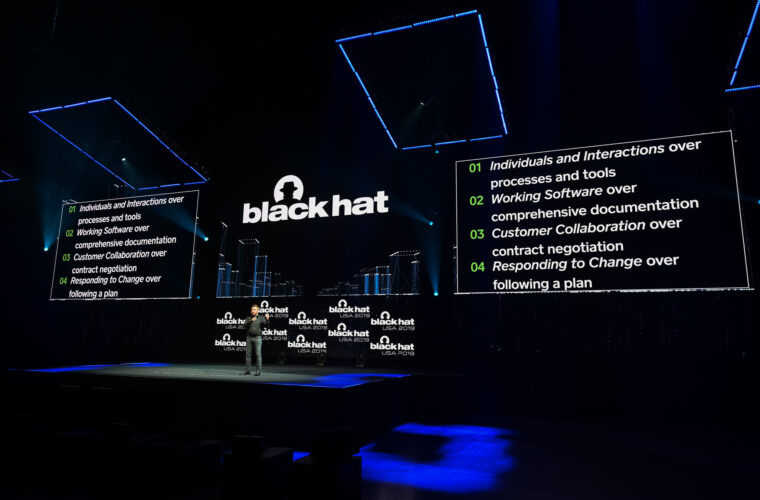Artificial intelligence (AI) is an evolving, revolutionary technology. But while society eagerly explores its applications, many organisations remain unable to seize the promise. Lacking the necessary computing knowledge, they need other AI-savvy groups to empower them.
The Dutch start-up OPT/NET is one of these enablers.
The company’s AI platform for telecoms, OptOSS AI, helps network operators manage and react to irregularities in their systems.
A separate company pipeline churns out cutting-edge artificial intelligence solutions for Earth observation, the stratospheric realm of satellites. The link between the two might, at first, be difficult to make out.
But according to Taras Matselyukh, the company’s Ukrainian CEO and co-founder, telecoms and satellites have an important characteristic in common.
Both fields share the burden of generating massive amounts of data — at rates far overwhelming their network capacities to deal with it.
From this perspective, the differences are merely a matter of scale, Taras explains. In telecoms today, systems handle astronomical quantities of data; in satellite and space technology, systems must overcome astronomical distances and complexity.
Managing and making sense of all this data is one of the fundamental challenges in applying deep learning systems to these fields.
This is where OPT/NET’s technology brings order to the chaos.

The inventor
Taras was a consultant in the telecoms industry. A background in quantum physics and electrical engineering helped him to build a reputation for solving intractable problems.
In 2013, he applied to participate in a space-to-Earth technology transfer programme through the European Space Agency (ESA).
“Real proven space technology, that was and is working on missions like Magellan Express around Venus, and most recently, Rosetta,” Taras recalls.
In 2016, the result of this was OPT/NET’s first viable AI product for telecoms.
In parallel, the team began to explore the field of Earth observation — a first step in demonstrating the broad applications of the technology.

Complex numbers
The multidimensional mathematics of Earth observation are extremely difficult for humans to understand. It is one area where people exhibit significant shortcomings, but where AI excels.
“Unlike humans, AI works with multiple dimensions natively,” Taras explains.
Machine learning is underpinned by the mathematics of tensors — of vectors and arrays. As a result, AI can quickly establish spatial and temporal patterns in data that make little intuitive sense to humans.
Most teams working with satellite imagery deal with a subset of synthetic-aperture radar (SAR) known as ground range detected. Data has been processed and adjusted to resemble a flat picture of Earth that humans can recognise.
But the original data, Taras explains, is always complex numbers.
AI-as-a-service
Deep Learning systems are usually trained to understand and make decisions through the use of labelled data sets.
These data sets must be compiled manually, which is a significant amount of work, and the results are usually systems, tailored to specific use-cases, that struggle when encountering the unfamiliar.
“They need clean data sets and then they create the model. This model becomes the holy grail, and this is what they sell,” Taras explains.
Taras’s technology looks instead at the raw data, the chaotic, hyperdimensional white noise — and finds patterns and anomalies. Where other systems need to filter out the overwhelming quantity of data, OPT/NET’s AI ingests everything. It is essentially agnostic about what field the time series data comes from.
In mere weeks, the company’s technology can create bespoke state-of-the-art solutions that have taken other teams months or even years to accomplish.
Between 2015 and 2017, Taras teamed up with AI specialists from the data department of the University of Amsterdam. The derived space technology was combined with the specialised knowledge of human domain experts, using a collection of supervised and unsupervised machine learning techniques.
The OPT/NET team discovered that domain expert knowledge, such as from Earth observation or remote sensing for agriculture, could be distilled into their algorithms very quickly. The result each time was a domain-specific ensemble of AI techniques that the company began referring to as AI knowledge packs.
OPT/NET has found a niche in near-real-time data processing and pattern detection, Taras explains — “Once we figure out those patterns, […] this is when we bring in the domain expert to educate the AI.”
Education involves transferring knowledge to the AI on what kinds of further investigation to make when looking at data — what is relevant and what is not. When should it disregard information or deep dive into a cascade of other detection programs?
“This is not training because all the training will happen by itself on the original data set,” Taras explains.
TSAR AI, the company’s flood warning solution and winner of the Emergency Management Prize in the Copernicus Masters 2018 competition, is an early example of this. It uses aerial satellite data to predict natural disasters.
The company has several ongoing projects.
Through funding from the European Commission, a feasibility study is being run to explore OPT/NET’s ability to tackle illegal fishing vessels. The company is also part of a collection of 16 companies receiving €8.4 million in Horizon 2020 funding for Goldeneye, a commission project to explore the applications of satellite technology in the mining industry.
“This is what makes our approach unique. Our approach is generic, […] universal,” Taras explains.

Fertile ground
OPT/NET is currently in the process of raising €6 million of investment. The round A will be used to expand the team and accelerate delivery, but the company is in no hurry to close, Taras explains.
“We are well stocked, we are flexible, and we have the luxury to look for the best partners,” he says.
OPT/NET is actively speaking with investors and was accepted into the InvestHorizon accelerator, a commission sponsored programme as part of European Innovation Council activities. The company is also raising through the BlueInvest Fund, another invitation-only commission initiative.
“We are tremendously grateful to the European Space Agency and European Commission for the fertile business structure that they have prepared for start-ups like us,” Taras says, adding that the combination of money, network, and technology have been instrumental in the company’s success.



